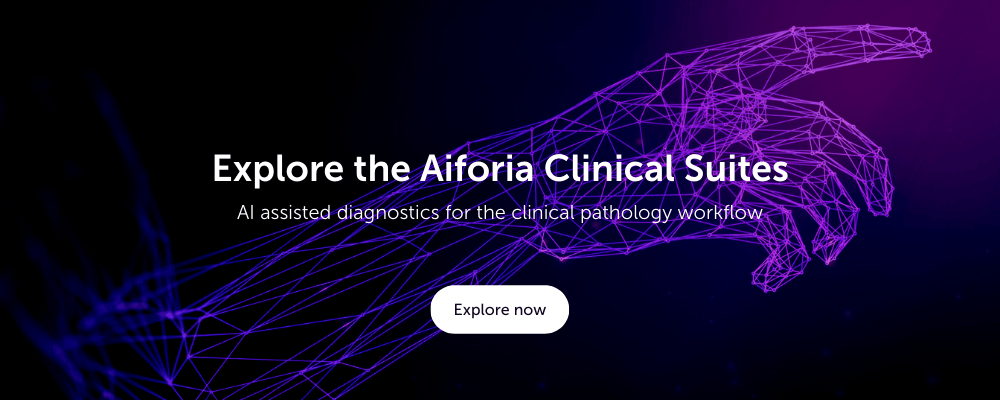Aiforia Technologies Plc, Press Release, 20 April, 2022 at 09.30 a.m. EEST. Aiforia Technologies Plc announces the CE-IVD marking of the Aiforia® Clinical AI Model for Breast Cancer; ER. Adding to its repertoire of CE-IVD marked clinical AI models for cancer diagnostics, the new AI model automates the calculation of estrogen receptors (ER) — a group of proteins present in the majority of breast cancers, therefore a vital biomarker in its diagnosis, as well as a commonly used predictive factor for treatment and prognostic factor for survival in breast cancer.
Pathologists are essential to healthcare, evaluating patient samples to guide diagnosis and treatment. Increasing rates of disease like cancer, the prevalence of which according to the World Health Organization Report on Cancer 2020 is expected to rise by 47.4% between 2020 and 2040, are creating a growing burden on pathologists. This challenge is exacerbated by the fact that pathologists rely on manual slide analysis with microscopes; a cumbersome and variability-prone technique. These semi-quantitative methods of evaluating patient samples are also widely adopted in labs around the world in calculating ER as part of breast cancer diagnostics.
Through automation and digital tools clinical pathology labs can increase the speed and accuracy of their work, thereby enabling patients to receive diagnoses and treatment plans faster while also alleviating the strain on pathologists. Aiforia is meeting the demands for enhanced technology with deep learning AI software and tools for supporting pathologists in diagnostics as well as in automating clinical workflows.

The CE-IVD marked Aiforia® Clinical AI Model for Breast Cancer; ER has the potential to improve the prognostic and predictive value of ER analysis in breast cancer diagnostics.
The CE-IVD marked Aiforia® Clinical AI Model for Breast Cancer; ER has the potential to improve the prognostic and predictive value of ER analysis in breast cancer diagnostics through its unique functionalities: automating the detection of tumor areas as well as the calculation of ER-positive and negative cells from whole slide images (WSIs) and selected areas and even the viewing and selection of areas with high ER-positive density, or hotspots. Ultimately displaying the AI-assisted image analysis results to pathologists in a timely and consistent manner.
“The Aiforia Clinical AI Model for ER showed to produce robust, quantifiable and consistent data. This in turn can lead to significant time savings and clinical workflow improvements for pathology labs as the evaluation time per case required from a pathologist is reduced.” explains Dr. Juuso Juhila, Director of Clinical Products at Aiforia Technologies. “The AI model also provides the ability to predict which patients are most likely to respond to endocrine therapy, a highly efficacious targeted breast cancer treatment.”
Aiforia Technologies is currently developing its Clinical Suites, a portfolio of novel deep learning AI and cloud-based tools for pathologists to work with whole slide digitized images from different scanners and labs, providing them support in the diagnosis of various cancers such as lung, breast, prostate and others. Currently the company has three CE-IVD marked AI models, ready to be deployed in laboratories and hospitals.
“We believe that AI and digital solutions are the future of cancer diagnostics. Aiforia already has the technology and capabilities to cater to this. Our aim is to help alleviate the challenges faced by global healthcare systems, to help reduce costs, and to ultimately support pathologists in their work to improve patient outcomes and enable precision diagnostics,” explains Jukka Tapaninen, CEO of Aiforia Technologies.
